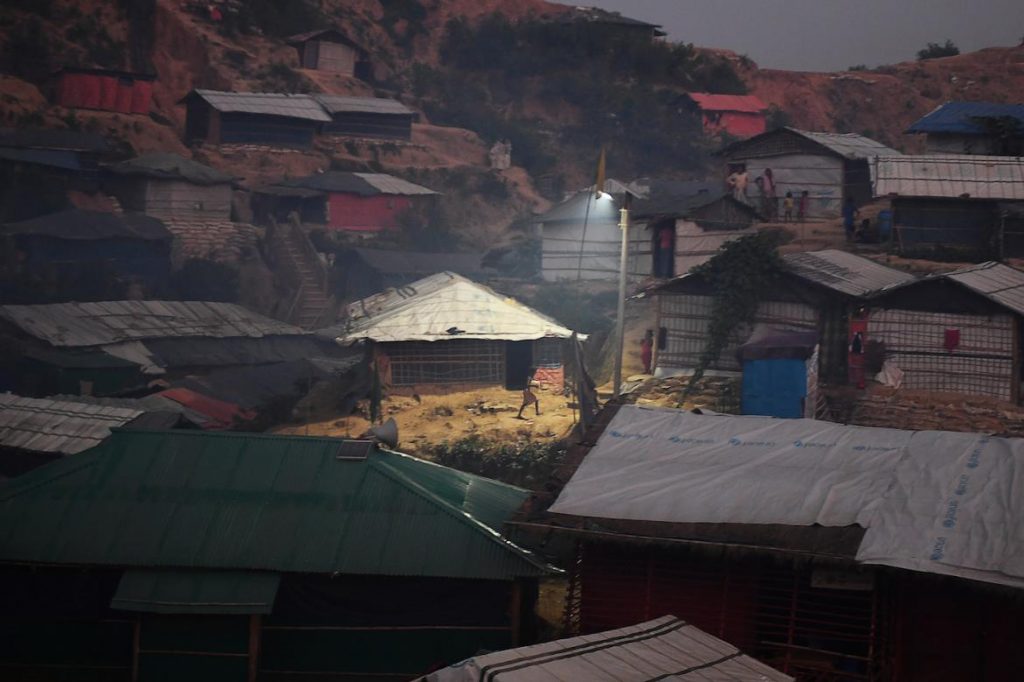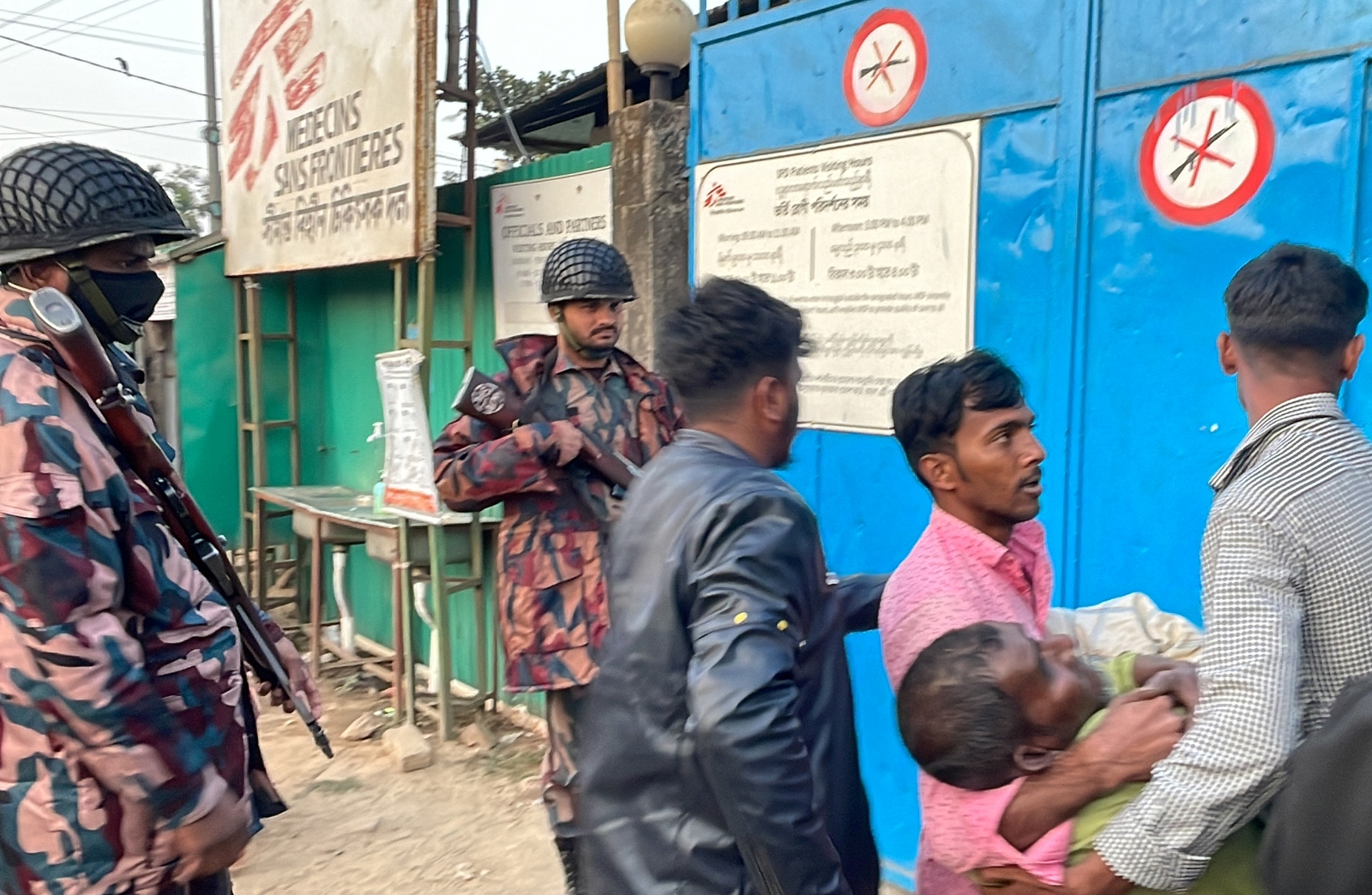By AFP
DHAKA — Criminal gangs and militants are increasing their grip on Rohingya refugee camps in Bangladesh, committing killings and abductions with “impunity”, International Crisis Group said in a new report Thursday.
About 740,000 Rohingya fled Myanmar for Bangladesh after a military crackdown in August 2017, joining huge numbers already confined to the camps after earlier violence across the border.
With no prospect in sight of the Rohingya returning to their homes in Myanmar, the international community must also now help Bangladesh to house the refugees for years ahead, ICG said.
The conflict research group called for Bangladesh to toughen its police presence, saying that gangs and extremist groups were now operating openly in the camps.
Support more independent journalism like this. Sign up to be a Frontier member.
Threats from extremists had left Rohingya leaders fearful for their lives and that frequent murders were “rarely” investigated, it added.
“Refugees express serious concerns about their personal security, and militants and gangs are intimidating, kidnapping and killing with impunity,” the ICG report said.
“Murders and other forms of violence are an almost nightly occurrence… and perpetrators have almost never been brought to justice.”
The group said some Rohingya community leaders “had received credible death threats, they believe from ARSA, and fear for their lives,” it said, referring to the the militant Arakan Rohingya Salvation Army.
ARSA has been blamed for deadly attacks on Myanmar security forces in recent years, including the attacks which sparked the 2017 clampdown.
Bangladesh police said the creation of seven new police posts, the deployment of armed police and better intelligence had improved security.
“The report is exaggerated but not baseless. It is true violence in the camps has increased,” Cox’s Bazar district police spokesman Mr Iqbal Hossain told AFP.
About 60 Rohingya have been killed in the camps since the 2017 refugee influx, Hossain said.
He denied that ARSA had a presence in the camps and said most killings were part of a power struggle among Rohingya groups.
“Intelligence activities have been stepped up to find out whether ARSA is involved in killings,” he said, adding that some 1,000 police and security officers had been deployed in camps.
But ICG said police were “overstretched” and focused on perimeter security and the protection of local Bangladeshis.
When the night comes and “humanitarian workers withdraw to their bases in Cox’s Bazar town, security is in the hands of untrained and unarmed night watchmen appointed from among the refugees,” it said.







